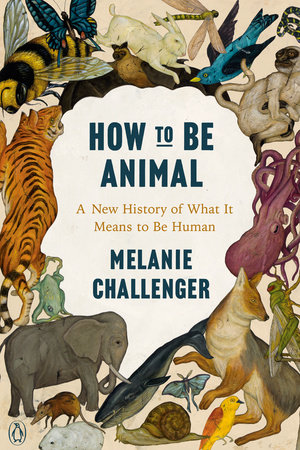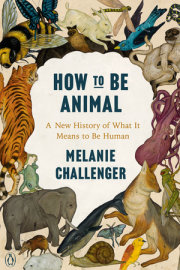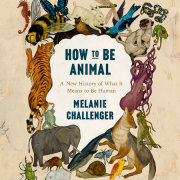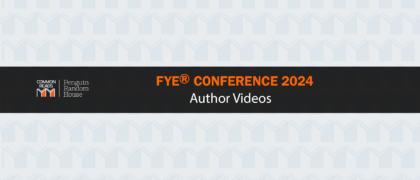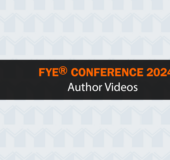The Indelible Stamp
Man with all his noble qualities, with sympathy which feels for the most debased, with benevolence which extends not only to other men but to the humblest living creature, with his god-like intellect which has penetrated into the movements and constitution of the solar system - with all these exalted powers - Man still bears in his bodily frame the indelible stamp of his lowly origin.
Charles Darwin
The world is now dominated by an animal that doesn't think it's an animal. And the future is being imagined by an animal that doesn't want to be an animal. This matters. From the first flakes chipped from stone in the hands of walking apes at least several million years ago, history has arrived at a hairless primate with technologies that can alter the molecules of life.
These days, humans are agents of evolution with far greater powers than sexual selection or selective breeding. Thanks to breakthroughs in genomics and gene-editing technologies, the biology of animals, including humans, can be rewritten in various ways. We have created rodents with humanised livers or brains partly composed of human cells. We've made salmon that grow to our timetable. Scientists can sculpt DNA to drive lethal mutations throughout a whole population of wild animals.
Meanwhile, the rest of the living world is in crisis. In our oceans, our forests, our deserts and our plains, many other species are declining at unprecedented rates. In geological terms, we're an Ice Age, a huge metamorphic force. Our cities and industries have left their imprint in the soil, in the cells of deep-sea creatures, in the distant particles of the atmosphere. The trouble is we don't know the right way to behave towards life. This uncertainty exists in part because we can't decide how other life forms matter or even if they do.
All that humans have tended to agree on is that we are somehow exceptional. Humans have lived for centuries as if we're not animals. There's something extra about us that has unique value, whether it's rationality or consciousness. For religious societies, humans aren't animals but creatures with a soul. Supporters of secular creeds like humanism make much of their liberation from superstition. Yet the majority rely on species membership as if it is a magical boundary.
This move has always been beset by problems. But, as time has passed, it has become harder to justify. Most of us act according to intuitions or principles that human needs outrank those of any other living thing. But when we try to isolate something in the human animal and turn it into a person or a moral agent or a soul, we create difficulties for ourselves. We can end up with the mistaken belief that there is something non-biological about us that is ultimately good or important. And that has taken us to a point where some of us seek to live forever or enhance our minds or become machines.
None of this is to say that there aren't clear differences between us and everything else. Our conscious encounter with the world is a breathtaking fact of how life can evolve. We chat together about abstract concepts and chip images of ourselves out of rock. Like the beauty that a murmuration of starlings possesses, our experience seems to be more than the sum of our parts. From childhood onwards, we have a sense of identity, a kaleidoscope of memories. The sorts of skills and knowledge we bring into play in living and reproducing include the ability to fantasise and deceive, control certain urges and imagine the future. Through a blend of senses, emotions, hidden impulses and intimate narrative, we dream and we anticipate. The human mind is an amazing natural phenomenon. Yet our kind of intelligence - having a subjective consciousness, among other things - does more than just enrich our experience of life. It provides far greater flexibility in our behaviour than might be possible without it, most especially with each other.
Little wonder then that we have spent much of history asserting that human experience has a meaning and value that is lacking in the rigid lives of other animals. Surely there is something about us that can't be reduced to simple animal stuff? Some might say that stripped of culture we become more obviously akin to the other creatures on Earth, relying on wits and body to get the energy to remain alive. Many works of art have aimed to teach that lesson, needling the imagination with the image of a human at the mercy of the forces of the natural world. But even so, we recognise that this individual has a potential for awareness that is unique in what we know - so far - of life in the universe. Here we have it. The exhilarating oddness of being something so obviously related to everything around us, and yet so convincingly different.
We are the mythical being our ancestors once painted on rock - a therianthrope, part animal, part god. There is the animal body, the bit of us that bleeds and ages, and then there is the exceptional bit that seems to come from our intelligence and self-awareness, our spirit. As American political scientist George Kateb has written, we are 'the only animal species that is not only animal, the only species that is partly not natural'. This idea can be found everywhere. We are animals as we embrace and as our bloodied newborns slide from the bodies of women but not when we make vows. We are animals as we bite into the flesh of our meal but not in the workplace. We are animals on the operating table but not when we speak of justice. This split in the human condition, we are told, has not only saved us from the meaningless lives of other creatures but forms the basis of the world we inhabit. It has raised us to the highest position in a hierarchy of life. It has left us with the impression that the human world is rich while the animal world is its pale shadow. And this has opened the way to a worldview in which our flourishing is the ultimate good.
It is, of course, perfectly possible to believe that humans are animals with no special origin or meaning, even peculiarly rapacious animals that the world would be better off without. But people rarely behave in accordance with this view - in other words, they usually continue to live as if the human world has meaning and rules of conduct that can be better or worse.
Perhaps it ought to end there. Yet we remain haunted. Many of our most common beliefs spring from an underlying refusal to accept that we are organic beings. Our kind of awareness has left us uncomfortable with the facts of an animal life. Animals suffer and die according to random events. Being a creature related to everything from an oak tree to a jellyfish brings with it threats like pathogens, injury, physical change and - for us - moral uncertainty. All that we love and value must be tugged out of an untamed landscape. This is both frightening and confusing. From this perspective, being animal is an embarrassment. Worse still, it is a danger.
Yet history has given us hope that we are different from the rest of the earthly rabble. What we truly are will save us from the fate of animals. Where other animals must suffer and perish, we have the gift of deliverance, whether into heaven, a glorious future or even merging with machines. We can be more than our animal bodies or our organic nature. What is important about us is somehow protected from the natural forces over which we fear we have no power. But this creates a strange amnesia. In convincing ourselves that there's a real and radical dividing line between us and all other organisms, we seem an impenetrable mystery.
Because of this, our relationship with being an animal is nothing less than bizarre. Most of us feel a frisson of anxiety that we live in a topsy-turvy world. Many of the things we most value - our relationships, the romantic sensations of attraction and love, pregnancy and childbirth, the pleasures of springtime, of eating a meal - are physical, largely unconscious and demonstrably animal. The things we most want to avoid - suffering, humiliation, loneliness, pain, disease, death - are born of animal instinct and the shared needs of an organism. Which is the truest part of the human experience, the animal, bodily feelings or the mental flickers of a wilful, storytelling intelligence? The trouble for us is that none of it quite makes sense. In our layered experience of the world, it's possible to believe we have left behind the blunt realities of being animal. Nothing could be further from the truth. Human life may be a blend of biology and dreams, but these dreams are still animal dreams. They are not separate to the bodies from which they arise. It's nonsense that our gifts have made us something that isn't animal.
So it is that we live behind a hidden membrane through which - at any moment - one of us may tumble to find ourselves on the other side. Opening our eyes, we face the truth of what we are, a thinking and feeling colony of energy and matter wrapped in precious flesh that prickles when it's cold or in love. We are a creature of organic substance and electricity that can be eaten, injured and dissipated back into the enigmatic physics of the universe. The truth is that being human is being animal. This is a difficult thing to admit if we are raised on a belief in our distinction.
What is different for our generation is that we now know something that would have been blasphemous until very recently in human history. We know not only that the Earth is not the centre of the universe but that we are not the centre of life. Instead, we are an animal that finds itself aware of being an animal bound into the dark tissues of time and energy. The human species is an integrated part of the life on our planet, not an exceptional creation by itself.
If we had stayed in small bands on the African savannah, perhaps this knowledge would have had little consequence. As it is, there are now billions of us spread across all continents of the Earth. Nowadays, technological and industrial advances have distanced us from and, increasingly, medicalised our animal nature such that some of us treat our bodies as a malfunctioning part of us. The ongoing truth of our state can come as a shock. We are surprised by our frail flesh, the susceptibility of our bodies to desire as much as to disease. We spend millions to slow the ageing process, even more on the battle with ill health, and we are living through a determined project to remove reproduction from the messy chaos of our bedrooms and a mother's womb.
In our current industrial revolution, we have turned to the engineering of life in our pursuit of human wellbeing. It's hard to overstate the significance of this. Technologies that target our biology are constant reminders that we are animals. This is a problem for those who don't want to be one. A technological revolution that exploits the anatomy, physiology and behaviours of living organisms may be incompatible with human psychology. What we risk is a runaway process where our fear of being animal causes us to hammer out a more frightening world - not frightening in the sense that the world is nastier or more violent, but in a paradoxical reliance on technologies that aggravate the existential fears beneath us.
There's every reason to believe that when faced with a threatening reality, we will seek greater separation between us and the rest of nature. What form this separation might take is uncertain. One choice might be to do away with other animals or bring more of them out of a wild state and into submission. An easier course of action could be to put even greater accent on human exceptionalism, either by trying to make us superhuman or by shoring up our comforting beliefs. But yet another possibility is to do away with humans instead. It's easy to dismiss any one of those choices as overblown until we look around us. Each of them is being actively explored.
Of course, it's tempting to think that the uneasy relationship humans have with being animal is but an invention of modern civilisations or of a narrow band of philosophers. After all, the Lakota prayer Mit‡kuye Oy‡s'i, most often translated as 'all are connected', is importantly different to that of the Roman Catholic catechism of the human person as Imago Dei. Some cultures amplify human distinction more than others. In light of this, some of the general statements in this book will refer more to the ideas of those civilisations. But the struggle with being animal isn't only a figment of culture. Our ideas are shaped around the anvil of human nature. These days, some say there's no such thing as human nature. But that is true only up to a point. Many things in our world work because we are - for want of a better description - a group of animals similar enough to be called a species. Our ideas about ourselves matter enormously, but they don't leave us untouched by common biological or psychological characteristics. The diverse ideologies of the world have attempted to solve some of the troubles that can come from being animals. But these are not just problems that evolutionary history creates for our redemption. We are a species that ponders its own condition. The underlying difficulties of being an animal remain, no matter what culture or era a person is born within. We all face real worries and dilemmas as a consequence of being alive among a multitude of lives.
This book is a defence of what it means to be an animal. It doesn't involve belittling us or losing sight of the obvious differences that mark us out. Nor does it result in a confused preference for what might be thought of as natural. Rather, this is an argument for a deeper understanding of how we think about life. Our animal origin is the story of our place in the world. It's the basis of how we give meaning to our existence. This is an impossible task without first accepting that humans are animals. This should be straightforward, yet it isn't. In truth, we live inside a paradox: it's blindingly obvious that we're animals and yet some part of us doesn't believe it. It's important to try and make some sense of this. And then, once we accept that we're animals, to think about what flows from that.
In a poem written in 1980, Galway Kinnell writes of how living things must contain within them a kind of self-love for their own unique biological form. In a way, this is the principle of survival. But he recognises that 'sometimes it is necessary/to reteach a thing its loveliness'. What follows is an attempt to make sense of the kind of being that we are. Yet it's more than that. It's an invitation to refresh in our minds the loveliness of being animal.
Copyright © 2021 by Melanie Challenger. All rights reserved. No part of this excerpt may be reproduced or reprinted without permission in writing from the publisher.


